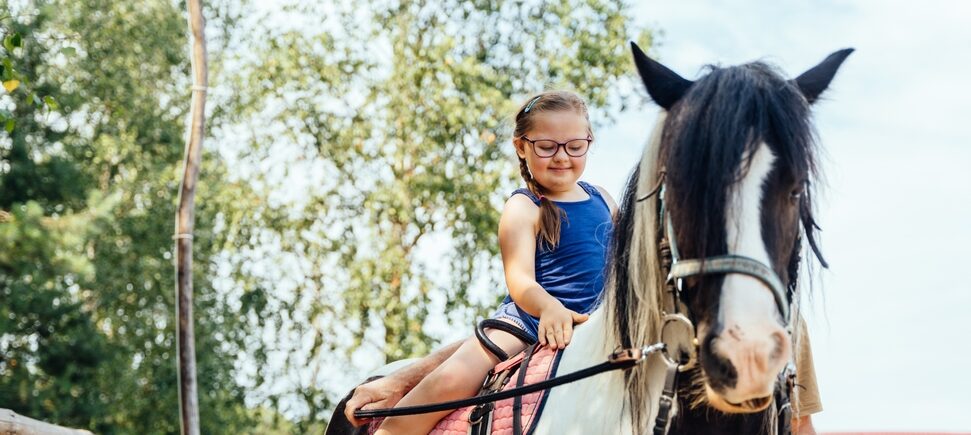This article is from the Pathways to Friendship Toolkit For Community Recreation, Cultural, and Faith Organizations. To download the full toolkit, featuring nearly 60 pages of resources, visit the Trainer’s Corner.
Ben Becker’s Camp Nassau, near Albany, New York, was a typical day camp in many ways. About three hundred campers came each day, and they were organized into age groups. The ten-year-old boys were the Woodchucks; the nine-year-old girls were the Dolphins; the twelve-year-old girls were the Chipmunks. Through the day, the groups engaged in activities typical of a day camp: swimming, canoeing, crafts, nature lore, horseback riding, and so on.
One thing about the camp, however, was not so typical. Its owner and director, Ben Becker, decided that it would be a good learning experience for everyone to recruit campers who were children with physical or intellectual disabilities. He ensured that 5-10% of the campers in any given week were children with disabilities, and he even gave scholarships as necessary to make sure. Thus, when the Chipmunks went horseback riding, not every Chipmunk could just jump on a horse and ride; and not every Chipmunk could learn as quickly or as easily as every other Chipmunk.
For instance, in the group of thirty Chipmunks, one was a girl who was blind. When she went horseback riding with the Chipmunks, another girl rode on a horse next to her, to call over instructions and encouragement. Another of the Chipmunks was a girl with intellectual disability and with cerebral palsy, and she had limited control especially on one side of her body. So, when she went horseback riding with the Chipmunks, she had a more secure type of belt as well as another girl riding at her side on another horse, and sometimes at a curve one of the counselors would run along at the other side of the horse, like a spotter in gymnastics. Another Chipmunk was a girl who had no effective use of her legs. So, when she went horseback riding with the Chipmunks, one of the bigger girls who was already a good rider would ride in back of her in the saddle, holding her shoulders to make sure she would stay on the horse.
We human service visitors were very impressed with Ben Becker’s camp, but it was only looking back on it that we realized that his camp operated under a rule—every twelve-year-old girl is a Chipmunk, and every Chipmunk is a horseback rider. Even though they did not state it under a rule, that was the principle which guided the camp.
Back in the “bad old days,” human services operated under a rule that some people are horseback riders, and some aren’t. It’s a shame, really, since horseback riding is such a fine experience, but some people just don’t have it in them to be horseback riders. In contrast, in our services in these more progressive days, most programs have a more enlightened rule. We have high expectations for all our campers, and our rule now is that every Chipmunk will be a horseback rider someday. In the meantime, we’ll hire the best teachers and the gentlest horses for our “special” group of future horseback riders, working with them patiently and intensively until, some day (we know it will come!), they will be able to become horseback riders as a member of the Chipmunks.
Doesn’t sound so bad. But at Ben Becker’s camp, they had a different rule – every twelve-year-old girl is a Chipmunk, and every Chipmunk is a horseback rider. What varies is not who is a horseback rider and who isn’t; every Chipmunk is a horseback rider. And what varies is not when someone will attain horseback rider status; every Chipmunk is a horseback rider, now, today. The only thing that varies is what help a person needs to stay in the saddle
This article is from the Pathways to Friendship Toolkit For Community Recreation, Cultural, and Faith Organizations. To download the full toolkit, featuring nearly 60 pages of resources, visit the Trainer’s Corner.




